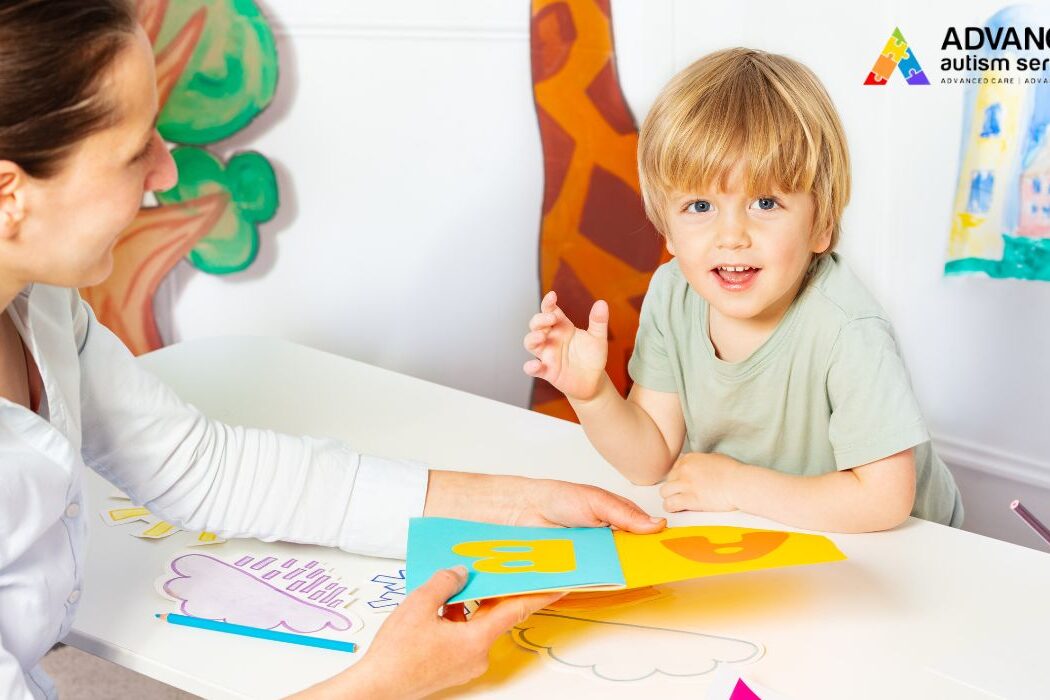- Autism red flags in toddlers,
- Autism spectrum signs in early childhood,
- Autism warning signs in infants,
- Behavioral cues for autism in toddlers,
- Early detection of autism symptoms,
- Early developmental delays and autism,
- Early indicators of autism spectrum disorder,
- Identifying autism in young children,
- Recognizing autism symptoms early,
- Signs of autism in babies
Parenthood is a journey filled with excitement, joy, and challenges.
As parents, we watch our children grow and develop, eagerly anticipating each milestone they reach.
However, when a child displays signs of developmental differences or delays, it can be a source of worry and concern for parents.
Autism spectrum disorder (ASD) is one such developmental condition that can manifest in early childhood.
Recognizing the early signs of Autism in babies and toddlers is crucial for timely intervention and support.
In this article, we will explore the early signs of Autism, the importance of early detection, and how parent and family training can make a significant difference in the lives of children with Autism.
We will also discuss a valuable resource, the website “Advanced Autism,” which offers guidance and support to families dealing with Autism.
Early Signs of Autism in Babies and Toddlers
Social Interaction
Early signs of Autism often include difficulties with social interaction.
Babies and toddlers with Autism may exhibit the following social challenges:
- Lack of eye contact: They may avoid eye contact with caregivers or other people.
- Limited or absent social smiling: They may not smile back when smiled at or engage in shared smiles.
- Difficulty with social play: They might need to engage in simple back-and-forth games, such as peek-a-boo.
Communication
Communication challenges are another hallmark of Autism in young children.
The following communication difficulties may be observed:
- Delayed or absent speech: Some children with Autism may not start talking or have a limited vocabulary.
- Lack of response to their name: They might not react when their name is called, making it seem like they need to pay attention to people around them.
- Limited use of gestures: They may not point, wave, or use other gestures to communicate.
Repetitive Behaviors
Repetitive behaviors are common in children with Autism and can manifest in various ways, such as:
- Hand-flapping or repetitive body movements.
- Insistence on sameness or routines.
- Intense interest in specific topics or objects.
Sensory Sensitivities
Many children with Autism also have sensory sensitivities, which can lead to overreactions or underreactions to sensory stimuli like lights, sounds, textures, or smells.
It is important to note that not all children with Autism will display all of these signs, and some may exhibit additional behaviors not listed here.
The key is to recognize that early symptoms can vary from one child to another.
The earlier these signs are identified, the sooner families can seek help and support.
The Importance of Early Detection
Early detection of Autism is crucial because it allows for early intervention, which can significantly improve a child’s developmental outcomes.
Research has shown that early intervention services can lead to better language skills, social interactions, and overall quality of life for children with Autism.
When parents and caregivers recognize the early signs of Autism and seek professional guidance, it enables a child to receive the appropriate support and therapies tailored to their specific needs.
This early intervention can help autistic children develop essential skills and improve their well-being.
Parent and Family Training
Parent and family training are invaluable components of early intervention for children with Autism.
When a child is diagnosed with Autism, it’s not just the child who embarks on a journey of growth and learning; it’s the entire family.
Here are some key aspects of parent and family training:
Education and Information
Parents and family members can benefit greatly from education and information about Autism.
Understanding the condition, its characteristics, and how it impacts their child is essential.
This knowledge empowers parents to make informed decisions about their child’s care and development.
Effective Communication Strategies
Effective communication strategies can help parents and caregivers engage with their children more effectively.
These strategies include using visual supports, incorporating social stories, and adapting communication methods to suit the child’s needs.
Behavior Management
Parent training often includes strategies for managing challenging behaviors.
This may involve implementing behavior plans, understanding triggers, and using positive reinforcement techniques to encourage desirable behaviors.
Support Networks
Building a solid support network is vital for parents and families of children with Autism.
Connecting with other parents who share similar experiences can provide emotional support, as well as opportunities to exchange tips and advice.
Coping with Stress
Raising a child with Autism can be emotionally and physically demanding.
Parent and family training often addresses stress management techniques to help parents and caregivers cope with the challenges they may face.
Setting Realistic Expectations
Setting realistic expectations for a child with Autism is essential.
Parent training can help families understand their child’s strengths and challenges, allowing them to set achievable goals and celebrate their child’s progress.
Advanced Autism: A Valuable Resource
The journey of parenting a child with Autism can be both rewarding and challenging.
Fortunately, there are resources available to assist families on this journey.
“Advanced Autism” is a valuable website that offers a wide range of information, support, and guidance for families dealing with Autism.
Advanced Autism provides a wealth of resources, including articles, videos, webinars, and expert advice, all aimed at helping parents and caregivers navigate the complexities of Autism.
The website covers various aspects of Autism, from early signs and diagnosis to effective intervention strategies and support networks.
Here are some of the key features and resources available on the Advanced Autism website:
Early Detection Guides: The website offers comprehensive guides on recognizing the early signs of Autism in children.
These guides can help parents and caregivers better understand the condition and take timely action.
Parent Training Modules: Advanced Autism provides online training modules for parents and caregivers, offering practical advice on various topics such as communication strategies, behavior management, and coping with stress.
Expert Advice: Parents can access expert advice and insights from professionals specializing in Autism.
This information can be invaluable in making informed decisions about their child’s care.
Support Communities: Advanced Autism facilitates online communities and forums where parents can connect with others who are on a similar journey.
Sharing experiences and tips with other parents can be a source of comfort and guidance.
Access to Therapists and Specialists: The website offers information on finding and connecting with autism specialists and therapists in your area.
This ensures families have access to the appropriate professional support for their children.
Conclusion
Recognizing the early signs of Autism in babies and toddlers is a critical step in ensuring that children with Autism receive the support they need to thrive.
Early detection leads to early intervention, which can significantly improve a child’s developmental outcomes and quality of life.
Parent and family training is crucial, equipping caregivers with the knowledge and skills to support their child effectively.
Resources like “Advanced Autism” are invaluable in providing guidance and support to families dealing with Autism, offering information, expert advice, and a sense of community.
As parents and caregivers, it is our responsibility to be proactive in seeking help and support when we notice the early signs of Autism in our children.
By doing so, we can make a positive impact on their development and empower them to lead fulfilling lives.
Remember, every child with Autism is unique, and with the proper support and early intervention, they can reach their full potential.
The journey may be challenging, but it is also filled with moments of joy, growth, and achievement.
So, if you suspect that your child may be showing signs of Autism, take that crucial first step today and explore the resources provided by “Advanced Autism” to guide you on this journey of understanding, support, and love.
To learn more about recognizing the early signs of Autism and accessing valuable resources for families dealing with Autism, visit the “Advanced Autism” website at https://advancedautism.com/.
FAQs
What are the earliest signs of Autism in babies and toddlers?
Early signs can vary, but they may include difficulties with social interaction, communication delays, repetitive behaviors, and sensory sensitivities.
How can I differentiate between typical developmental milestones and signs of Autism in my child?
It can be challenging, but consistent delays or atypical behaviors in social interaction, communication, or behavior may indicate the need for further evaluation.
Why is early detection of Autism important?
Early detection allows for early intervention, which can lead to better developmental outcomes and improved quality of life for children with Autism.
What is parent and family training in the context of Autism?
Parent and family training involves educating and equipping parents and caregivers with the knowledge and skills to support and communicate effectively with their child with Autism.
Are there online resources available for parent training on Autism?
Yes, there are numerous online resources, including websites, webinars, and training modules, where parents can learn about Autism and effective strategies for supporting their child.
How can I find support networks for parents of children with Autism?
You can find support communities and forums online, as well as local support groups where parents can connect with others facing similar challenges.
Is it possible for children with Autism to lead fulfilling lives and achieve their potential?
Absolutely. With the proper support, early intervention, and appropriate therapies, children with Autism can reach their full potential and experience meaningful growth and achievements.
What should I do if I suspect that my child may have Autism?
If you suspect your child may have Autism, consult with a pediatrician or developmental specialist to discuss your concerns and explore diagnostic evaluation options.
Are there financial assistance programs or insurance coverage for autism-related therapies and interventions?
Many countries have financial assistance programs, and some insurance plans cover autism-related therapies. Check with your local government and insurance provider for information.
What should I expect during the diagnostic evaluation process for Autism?
The diagnostic process typically involves assessments by healthcare professionals, including developmental pediatricians, psychologists, and speech and language therapists. It may include interviews and observations of your child’s behavior and interactions.




